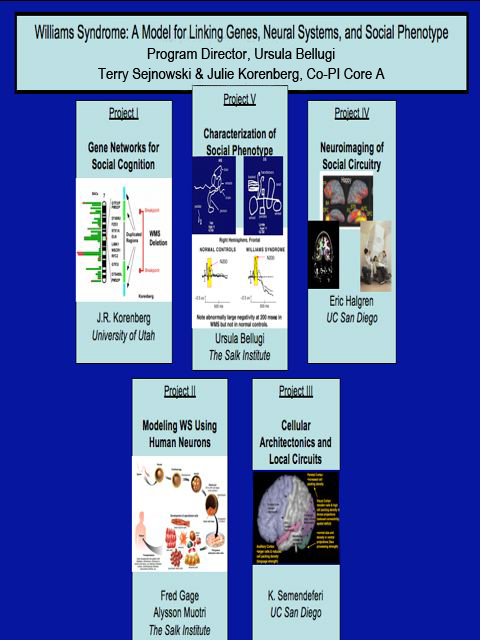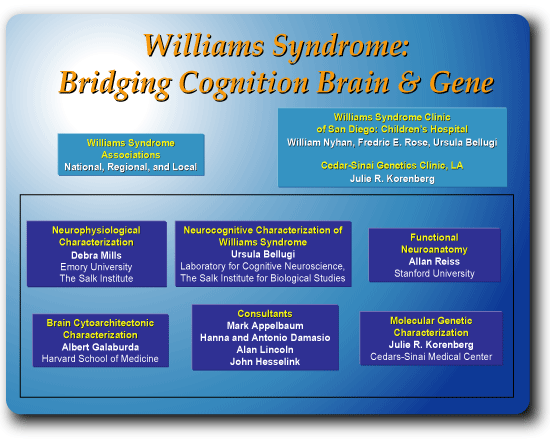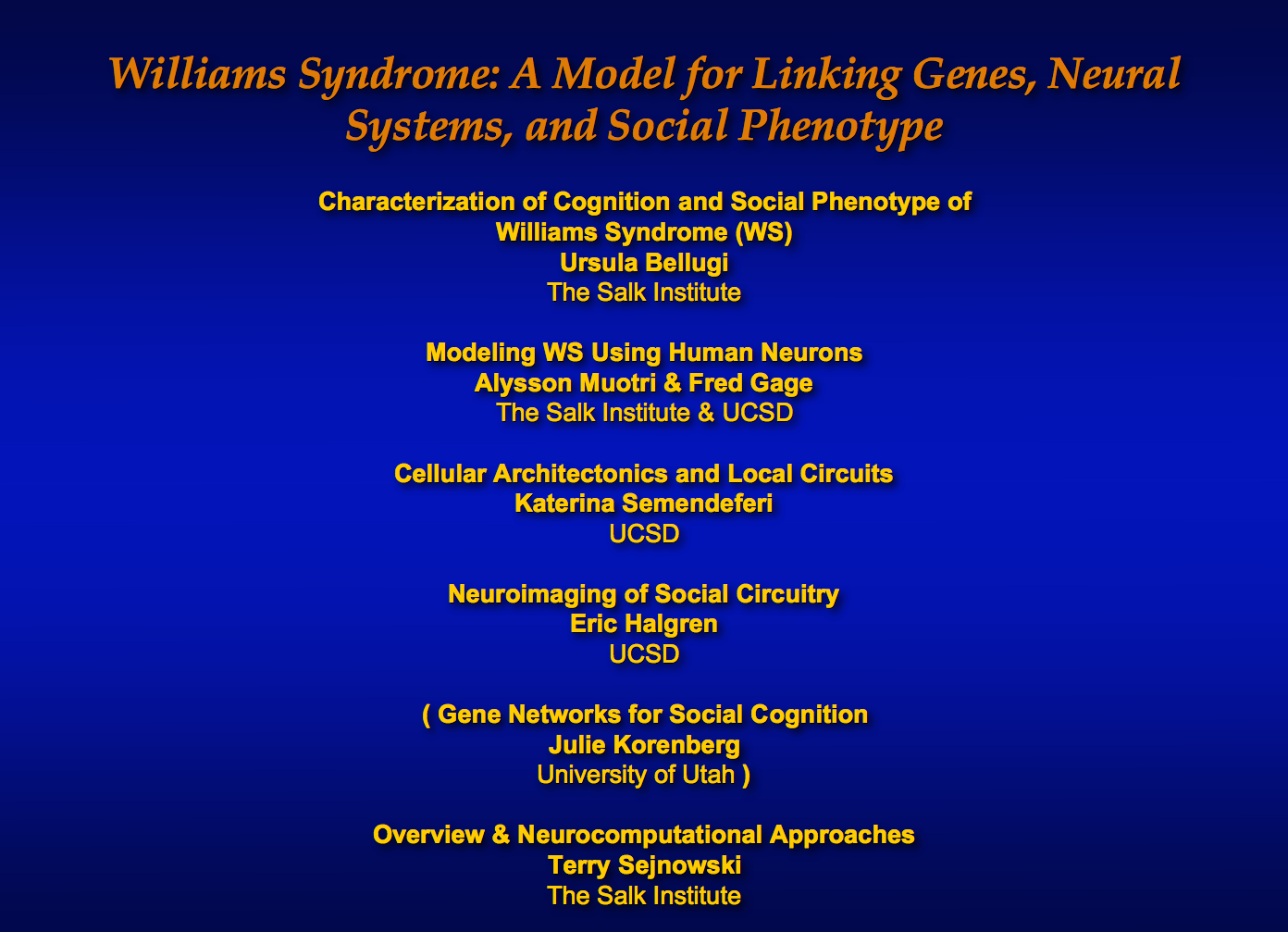Williams Syndrome: A Model for Linking Genes, Neural Systems, and Social Phenotype (2011-)
[P01 NICHD33113]

First Presentation of Major Goals for Program Project Renewal Institute for Neural Computation & KAVLI Institute May 14, 2011
University of California, San Diego Supercomputer Center.
==================================================
Linking Gene, Brain, and Cognition (1995-2010)
[P01 NICHD33113]

Perspectives from Genetically Based Disorders
Our Program Project Grant is the cornerstone of our studies linking gene, brain, and cognition. The overarching goal of this Program Project is to build bridges across disciplines: to link higher cognitive functions, their underlying neurobiological bases, and their molecular genetic underpinnings, using a specific genetic disorder, Williams Syndrome (WS) as a model. Centered at the LCN, we have brought together experts in the field from UCLA, Emory University, Stanford University, and Harvard University to work on our goal of mapping genotype to phenotype in brain structure and function. Our research to date, supported by independent laboratories around the world, has identified a unique combination of cognitive strengths and weaknesses including: a) deficits in general intellectual functioning coupled with strengths in expressive language; b) strengths in face processing coupled with specific deficits in visuospatial processing; and c) a strong appetitive drive for socializing with strangers, an overfriendliness. These unusual dissociations make WS an invaluable paradigm for the study of brain and behavior relationships and for the mapping of these relationships to the genome. Our project combines cognitive, electrophysiological, structural and functional magnetic resonance imaging, and cytoarchitectonics with molecular genetics to study groups of individuals with WS with the ultimate goal of mapping the genes involved in WS.
In addition to our role as a data collection center (see below), the LCN serves as the administrative, data tracking, and data integration hub of the entire project. Our staff are responsible for ensuring a smooth and unified approach to data collection and for overseeing the integration of data across projects. That is, our organizational structure is more than a series of studies operating in parallel, but rather we actively integrate findings from our different scientific paradigms and technologies to obtain a comprehensive understanding of the interrelationships between gene, brain, and cognition.
Five thematically linked projects comprise this line of research. They are:
Project I:
The Molecular Genetic Characterization of WS focuses on imprinting effects on the expression of WS region genes, determining the contribution of allelic sequence variation of the non-deleted chromosome, as well as map out individuals with small deletions. This project is carried out at the Genetics Laboratory of Dr. Julie R. Korenberg at Cedars-Sinai Medical Center/UCLA.
Project II:
The Neurophysiological Characterization of WS will characterize the electrophysiogical phenotypes of sensory and cognitive processing in individuals with WS in thematically linked experiments on visual processing, studies of affect face and language processing. The studies use the same stimuli and design as the fMRI studies and some of the cognitive studies. This project is carried out under the direction of Dr. Debra Mills of the Salk Institute and Emory University.
Project III:
Neuroimaging of WS uses multifaceted imaging methods (high field structural, functional, and diffusion tensor MRI) as well as novel analytical methods to address the brain basis of WS in tightly integrated MRI and fMRI studies of visual processing, affect, face and language processing. This project is directed by Dr. Allan Reiss of Stanford University.
Project IV:
Molecular and Cellular Architectonics focuses on cytoarchitectural variation and genetic expression within the brain tissue of WS. This project is directed by Dr. Albert Galaburda of Beth Israel Deaconess Medical Center and Harvard University.
Project V:
Neurocognitive Characterization, centered here at LCN, explores in-depth the processing basis of the unusual cognitive and social profile of WS. In addition to providing the Neurocognitive arm of the projects, the LCN is also the center for our Brain Tissue Donation Program, is involved with all participant recruitment and data tracking, as well as across-project data integration.
All projects working together will use the tools of molecular genetics, structural and functional brain analysis, and neurocognitive probes to map genetic architecture to phenotypic variation within WS. Through links across projects such studies will provide new opportunities to explore fundamental issues of cognitive neuroscience that tie cognitive function to brain organization and molecular genetics.






